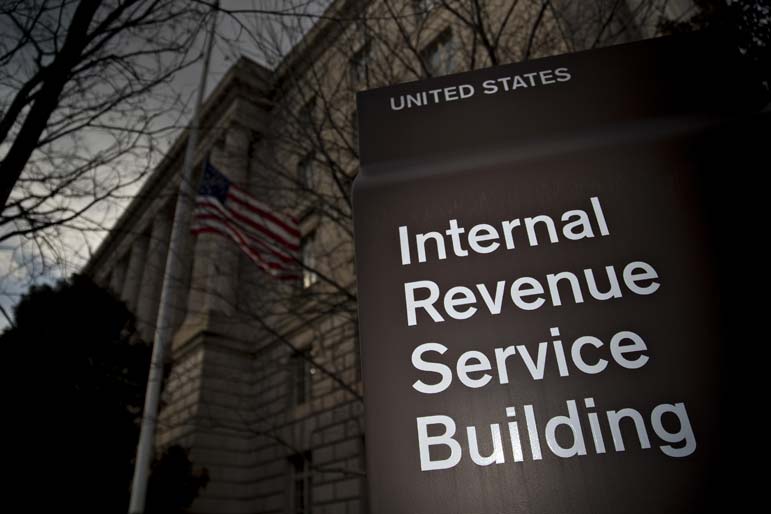 Andrew Harrer for Bloomberg
Andrew Harrer for Bloomberg
WASHINGTON - Tea party groups that say they were unfairly scrutinized by the Internal Revenue Service can now apply for financial compensation, in what is shaping up to be the closing chapter of a long-running fight between conservatives and the agency that dates back to the early years of the Obama administration.
Conservative-leaning organizations sued the federal government after a 2013 report from the Treasury inspector general found that the IRS was slow to approve nonprofit status for groups with "Tea Party" in their title.
After a multiyear legal battle, the Justice Department settled with the conservative groups last October. Earlier this month, a judge gave preliminary approval to a $3.5 million settlement between the department and a class-action lawsuit against the government launched on behalf of more than 400 groups.
Last week, lawyers for the five groups that led the lawsuit started circulating the terms of the federal settlement for hundreds of other tea party organizations to apply. "The $3.5 million settlement will allow these groups to be compensated for what happened to them," said Dane Martin, an attorney with Graves Garrett, a Missouri law firm that represented them. "These are small grass-roots organizations, and that money can go a long way. That's really exciting for them."
The money will be available only to go to the nonprofit organizations, not individuals' bank accounts. A court-appointed official will approve how much money goes to each group after all of the organizations have applied.
The decision adds another, possibly final, chapter to a saga that still infuriates conservative activists and Republican lawmakers, who accused the Obama administration of weaponizing the IRS for political gains.
The controversy was a national topic of conversation in 2013 after a report from the Treasury Inspector General for Tax Administration showed that IRS officials focused inappropriately on tea party and other conservative groups based on their names and policy positions when evaluating whether they deserved tax-exempt status.
The ensuing uproar strained relations between the IRS and congressional Republicans, who were already critical of the federal tax collectors and helped cut the agency's budget significantly since 2010. The controversy also led to the resignation of Steven T. Miller, then the IRS acting commissioner, and that of Lois Lerner, who served as director of the IRS exempt organizations division.
After taking control of Congress, the GOP ushered in several subsequent rounds of budget cuts for the tax collection agency. And during a bipartisan vote to overhaul some of the agency's guidelines this week, Republicans again referred to the controversy.
"The IRS is in dire need of a comprehensive overhaul to restore a taxpayer-first focus," House Speaker Paul Ryan, R-Wis., wrote on Twitter Wednesday. "For years, its fell short of the standards needed to protect people's data and privacy - not to mention its political targeting scandal."
But IRS defenders argue this was less a case of a concerted administration effort than a small group within the agency not adhering to protocol. They note an additional Treasury inspector general report in 2017 found that liberal groups had also been subject to extra screening, with groups being flagged if they had "Progressive," "Occupy," or "Green Energy" in their titles. Sen. Ron Wyden, D-Ore., accused the GOP of a "witch hunt" and "political grandstanding" after multiple rounds of hearings about the controversy, which some conservatives tried connecting to Obama.
Under President Donald Trump, government officials have continued to attack the IRS's previous actions. "There is no excuse for this conduct. Hundreds of organizations were affected by these actions, and they deserve an apology from the IRS," Attorney General Jeff Sessions said in a statement after the settlement was announced. "We hope that today's settlement makes clear that this abuse of power will not be tolerated."
But while Republicans have been accused of exploiting the controversy for political gain, even some former IRS officials acknowledged the agency has made mistakes - and should pay for them.
"These organizations' applications should have been processed in a timely way. There shouldn't have even been a hint of bias at these law enforcement agencies," said Marv Friedlander, a former official in the IRS exempt-organization unit who spent 40 years at the IRS before retiring in 2009. "And there should be a penalty to pay for that."


 Contact The Editor
Contact The Editor
 Articles By This Author
Articles By This Author